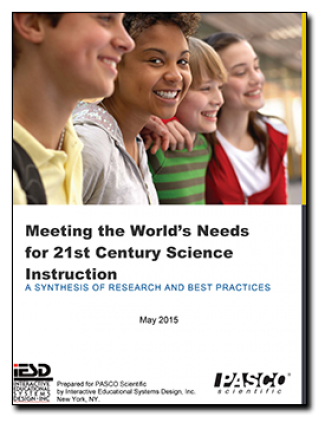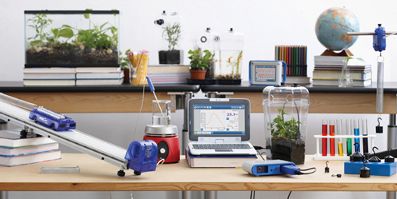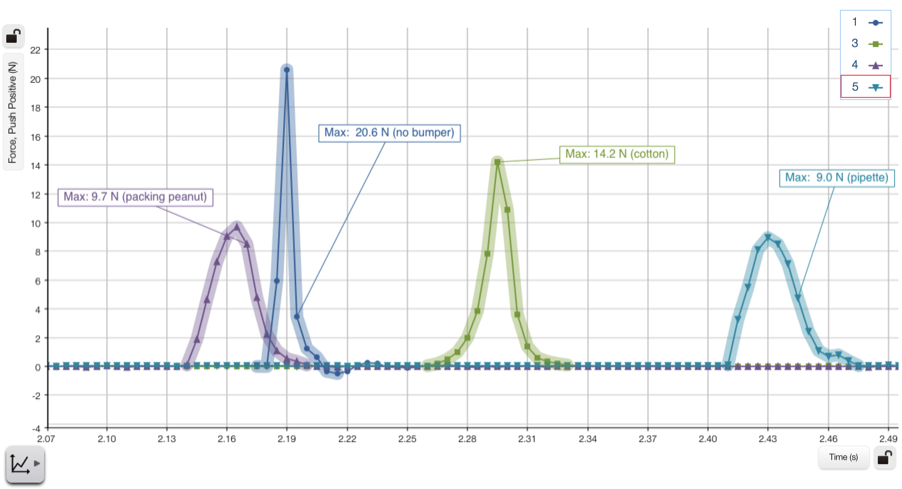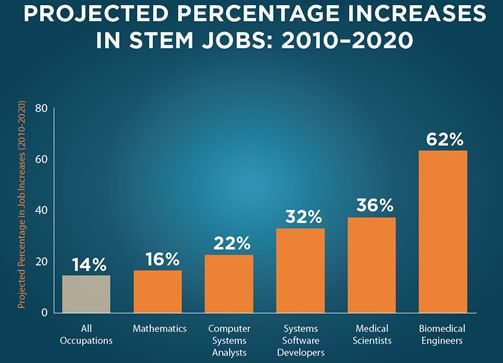 Join the Wireless Revolution with Probeware
Join the Wireless Revolution with Probeware
Why Probeware?
A major benefit not to be overlooked is that getting started with a wireless sensor equipped science program is extraordinarily affordable. For example, a wireless temperature sensor only costs $110 and does not require additional hardware. At these prices schools can easily afford to build-up their stock of wireless sensors over several years by simply using their existing science budgets.
And finally, wireless sensors work perfectly well with PASport sensors, so for current PASCO customers there’s no reason not to make the leap to wireless.
Sensor technology has never made more sense! It is time for your school to get onboard with the wireless revolution!

The ability of sensors to connect wirelessly to a wide range of devices- independent of an interface – is much more than simply a cool new feature. Wireless sensors are a transformative technology that promises to greatly expand the use of computer aided measuring in science from Elementary to Post Secondary institutions.
The rationale for using sensors in science education is well founded. However, due to limited science budgets, laboratory time constraints, lack of computers and other barriers, sensors have never attained the wide adoption as would seem warranted by the evidence based research.
‘Wireless’ is a game changing advancement that greatly reduces the traditional barriers to using sensors in the classroom. Without the need of an interface – and free software for Smart phones, Chromebooks and tablets – students will always have access to a computer of some type to graph and record data.
Wireless sensors are also more practical and easier to use than traditional interface based systems. With no wires or additional hardware to setup and clutter their work area, students can begin recording and analyzing data within moments. Teachers will also appreciate how quickly wireless sensors can be managed and stored. Less hardware means less hassle!
Research evidence demonstrates that sustained, guided student use of technology tools for data collection, analysis, and visualization helps deepen students’ understanding of science concepts. This increases their scientific literacy while giving them experiential knowledge of science practices. Research also suggests that such learning experiences help increase students’ interest, motivation, and engagement in science.
PASCO’s sensor-based lab investigations provide extensive opportunities for students to develop scientific literacy and familiarity with the practices of science through hands-on experiences using tools similar to those used by scientists and engineers. And PASCO provides high-quality student equipment at low cost, which helps stretch precious science education resources further.

The increased global need for scientific literacy requires a modern science classroom with the tools and technology to engage students in the learning process. And we at PASCO feel we are the leaders in innovative products to help you create that learning environment.

When students use probeware, the ability to collect precise data in real-time and analyze the results with powerful tools fuels an inquiry-based learning cycle.
“An understanding of science and technology is central to a young person’s preparedness for life in modern society.”
– Organisation for Economic Co-operation and Development – 2014, p. 216
“Science is more than a school subject, or the periodic table, or the properties of waves. It is an approach to the world, a critical way to understand and explore and engage with the world, and then have the capacity to change that world.”
U.S. President Barack Obama, March 23rd, 2015
Mastering PROBEWARE and hands-on technology prepares students for 21st century STEM careers.
- Professionals with knowledge in science, engineering, and technology are needed not only to boost economic performance, but also to help solve the problems of tomorrow. (UNESCO, 2010, p. 43)
- In the United States the average STEM major earns $500,000 more (in discounted lifetime earnings) than the average non-STEM major. This premium holds even when the STEM graduate is employed in non-STEM occupations. (Dobbs et al., 2012, p. 48)
- Possession of “the knowledge and skills needed to work effectively in jobs requiring STEM competencies” can lead to improvements in quality of life, working conditions, and wages for individual workers, with resulting value for countries and economies. (U.S. Congress Joint Economic Committee, 2012, p. 1)
- New Bureau of Labor Statistics data show that employment in STEM occupations is expected to expand faster than employment in non-STEM occupations from 2010 to 2020. (U.S. Congress Joint Economic Committee, 2012, p. 2)

The biggest growth in careers will be from jobs requiring university level training in Science, Technology, Engineering and Math. (From the U.S. Department of Education)

Effective teaching of science today requires a confluence of many different factors. Hands-on science using probeware increases learning and retention of core scientific concepts. But, beyond that, PASCO’s standards-based lab manuals, professional development and product support create a cohesive solution. (Image from Apple Classrooms of Tomorrow—Today).
Real World Examples
Throughout the world, teachers are using PASCO sensor and data analysis technology to deepen student understanding of science concepts and practices, while increasing student engagement and motivation in science.
- A physics and chemistry teacher in the Czech Republic has found that integrating scientific inquiry using PASCO tools helps university-bound students think critically and develop their research and problem-solving skills.
- A physics teacher in Australia has found that inquiry-based instruction using PASCO measurement tools helps students connect physics theory to practice and better visualize data, leading to improved student engagement and motivation. Teaching throughout his school has been revitalized as other teachers have adopted the same model of technology-supported inquiry.
- A secondary science instructional supervisor for a school district in the United States implemented a hands-on, inquiry-based science approach that incorporated PASCO technology, leading to increased motivation and creativity. During this time, student achievement on the state science exams improved significantly, reflecting deeper understanding of scientific concepts and principles.
